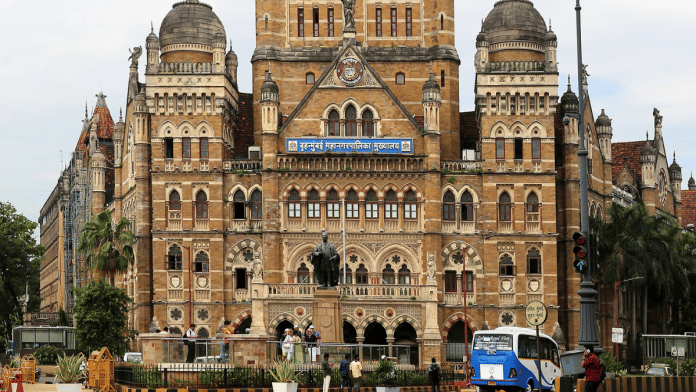New Delhi: Civic agencies in India are largely dependent on grants from the Centre and state governments as the average percentage share of their own source revenue to the total income is just around 35 percent, according to the Fiscal Empowerment of City Governments report released Thursday.
The report was prepared by Praja Foundation, a Mumbai-based non-profit organisation, in collaboration with the National Institute of Urban Affairs (NIUA), under the guidance of the Ministry of Housing and Urban Affairs.
The two organisations also released the Urban Governance Index 2024, ranking cities and states based on their performance and highlighting the lacunas in civic governance. Kerala was found to be the highest performing state in terms of urban governance, followed by Odisha, Maharashtra, Chhattisgarh and Madhya Pradesh.
A key highlight from the report was that the average share of property tax, which is the main source of revenue for municipal corporations, is just around 13.85 percent of the total budget of civic bodies in the cities that were surveyed. The municipal budgets of seven years (2017-18 to 2023-24) of 43 cities in 28 states and two Union Territories were studied to assess the fiscal framework of civic agencies in the country.
Milind Mhaske, Praja Foundation’s chief executive officer, said that 320 budget documents for seven financial years and 12 audit account documents were analysed. “The findings indicate the over-dependence of civic agencies on grants. The average share of property tax revenue to the total income is just 13.8 percent in the cities we assessed. In a majority of the cities, their own source revenue is a small percentage of the total budget, indicating that the civic bodies are dependent on grants.”
According to the report, Hyderabad has the highest average percentage share of own source revenue of the total income at 61.63 percent among cities with over 30 lakh population. It is followed by Delhi at 55 percent and Mumbai at 50.23 percent. Jaipur has the lowest average percentage share of own source revenue to total income at 22.9 percent.
The analysis of seven years’ worth of budget data from these cities showed that property tax continues to be a small percentage of the total income of cities. For instance, in Mumbai, average property tax revenue is just 3.09 percent of the total income of the Brihanmumbai Municipal Corporation.
Among the 43 cities with a population of more than 30 lakh, Hyderabad has the highest average percentage share of property tax (36.06 percent) to total income. In Delhi, property tax contributes around 26.7 percent to the total income, according to the report.
At the launch of the report, Debolina Kundu, NIUA’s director (additional charge), said, “Robust municipal finances are the backbone for efficient service delivery and independent functioning of the city governments. With the right financial instruments, city governments can lead to the right pathway. They need to be devolved with financial powers and authority to make themselves self-sustainable and independent in their functioning.”
Lack of financial authority
One of the main reasons for poor financial health of civic agencies is the lack of authority to introduce changes in the fiscal management.
The report highlighted that 23 of the 43 cities “do not have an independent authority to introduce new taxes given in the assigned list of taxes” according to the respective state municipal acts.
Despite the 74th Constitutional amendment, 10 states/UTs—Arunachal Pradesh, Bihar, Haryana, Jammu and Kashmir, Jharkhand, Manipur, Nagaland, Punjab, Rajasthan and Sikkim—have not devolved any of the three financial powers, the report said.
The Urban Governance Index 2024, which was also released Thursday, ranked cities based on parameters, like performance of powers given to elected representatives, mechanism for citizen participation in governance, and financial management, among others.
It was found that civic bodies in only 12 cities (such as Raipur, Delhi, Mumbai, Bhopal) of the 43 surveyed have power to introduce new taxes or charges.
Despite the 74th Constitutional Amendment, several states have not devolved all 18 functions, including urban planning, water supply and others, to cities.
“In Mumbai, 11 functions are under the independent control of the city, the highest among all states, while in three states (Meghalaya, Uttar Pradesh, and Uttarakhand) just one function is under the independent control of city governments,” the Urban Governance Index 2024 report said.
Also Read: Plan changes & lack of clarity, what’s causing delays in Delhi’s Central Vista revamp project






